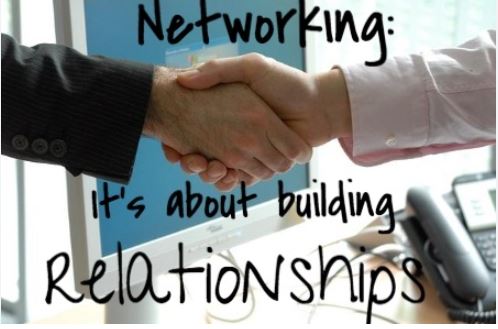Introduction
We often think about good communication as just being able to speak clearly or write well, but there’s so much more to it. why are communication skills important? In reality, communication is at the heart of everything we do—whether we’re pitching an idea, collaborating with a team, or navigating everyday interactions. It’s not just about exchanging information; it’s about understanding, connecting, and making an impact. In both personal and professional settings, strong communication skills are essential for success. They enable us to express ideas effectively, listen actively, and build meaningful relationships. In this post, we’ll delve into why communication is so crucial and how improving these skills can open doors to greater opportunities and personal growth.
Table of Contents
The Power of Communication Skills in Modern Life
Communication is more than just exchanging words—it’s how we connect, influence, build trust, and navigate the world around us. In today’s fast-moving, digitally driven society, strong communication skills are essential not just for success, but for everyday functionality.
We live in an era where we send emails instead of letters, pitch ideas over Zoom calls, and express emotions via emojis or voice notes. While technology has made it easier to stay connected, it has also made clear and effective communication more critical than ever. Misunderstandings can happen instantly, whether in a business meeting or a text conversation. That’s why mastering communication isn’t just useful—it’s necessary.
Here’s how powerful communication skills show up in modern life:
Personal Confidence and Clarity
Knowing how to express yourself gives you the confidence to speak up in meetings, make new friends, resolve conflict, or simply share your ideas. When you communicate clearly, people understand you—and that boosts self-esteem.
Stronger Relationships
Whether it’s with a partner, a co-worker, or a friend, communication is the key to healthy, lasting relationships. It helps avoid confusion, resolve misunderstandings, and build emotional connections.

Digital Communication and Online Presence
From social media to job applications, your written and visual communication defines how people see you. A well-crafted email or LinkedIn message can open doors, while poor communication can quickly shut them.
Smart Decision-Making
Effective communicators are also better decision-makers. Why? Because they know how to ask the right questions, actively listen, and weigh input from others before taking action.
Teamwork and Collaboration
Every successful team depends on good communication. It ensures that goals are clear, tasks are assigned properly, and everyone feels heard. In remote and hybrid work environments, this skill is more valuable than ever.
In short, communication touches nearly every part of life—from your morning coffee order to your career path. And the better you are at it, the more smoothly and successfully your life tends to run.
How Strong Communication Skills Impact Your Career
Whether you’re just starting out or climbing the leadership ladder, strong communication skills can be a game-changer for your career. In fact, many employers today value effective communication just as much as technical ability—sometimes even more. Why? Because how you deliver your message can directly influence your professional image, relationships, and results.
Let’s break down exactly how communication skills can shape and accelerate your career growth.
First Impressions and Interviews
When you walk into a job interview, your qualifications matter—but how you present yourself matters just as much. The ability to speak confidently about your experiences, explain your strengths clearly, and engage with the interviewer makes a lasting impression. Great communicators don’t just answer questions—they tell compelling stories that stick.
Workplace Collaboration and Productivity
Almost every job requires working with others. Whether you’re sharing updates in a team meeting, giving feedback, or managing a project, clear and respectful communication ensures everyone stays aligned. It reduces mistakes, improves teamwork, and boosts overall productivity.
Leadership and Influence
If you’re aiming for a leadership role, communication is non-negotiable. Leaders are expected to motivate teams, handle conflict, set clear expectations, and communicate vision. Strong communication builds trust, and trust builds influence—which is what leadership is all about.
Networking and Career Opportunities
Building a professional network is much easier when you can start conversations, ask thoughtful questions, and follow up effectively. Your communication style—both online and in person—can help open doors to new roles, mentorships, partnerships, or even promotions.
Conflict Resolution and Professionalism
Disagreements happen in every workplace. But those who can stay calm, listen actively, and express themselves clearly are the ones who navigate tension gracefully. This professionalism not only resolves issues faster but also earns you respect.
Remote and Digital Communication
In 2025, remote and hybrid work are more common than ever. This means your emails, video calls, messages, and presentations are often your only touchpoints with your team. Polished communication ensures your contributions are clear and valued—even when you’re not in the room.

The Role of Communication in Personal Development
Personal development isn’t just about gaining knowledge or learning new skills—it’s also about how you interact with the world and grow through relationships, self-awareness, and emotional intelligence. That’s where communication plays a crucial role. The better you communicate, the better you understand others—and yourself.
Strong communication skills help shape your mindset, boost your confidence, and build meaningful connections. Here’s how communication fuels personal growth:
Builds Self-Confidence
When you’re able to clearly express your thoughts and feelings, you naturally become more confident. Whether it’s speaking in a group, sharing your opinion, or asking for what you need, communication helps you advocate for yourself with ease.
Enhances Emotional Intelligence
Emotional intelligence—the ability to recognize, understand, and manage your emotions and those of others—is deeply connected to communication. Skills like active listening, empathy, and non-verbal cues allow you to engage in deeper, more authentic conversations.
Improves Decision-Making
Good communication helps you think through problems and articulate your options. When you can talk through challenges, ask questions, and gather input, you’re better equipped to make thoughtful, informed decisions.
Fosters Self-Awareness
As you become more mindful of how you speak and listen, you also become more aware of your patterns, habits, and triggers. This self-awareness is key to breaking negative cycles and forming healthier behaviors.
Strengthens Relationships
From family and friends to mentors and peers, strong communication allows you to build trust, resolve conflicts, and maintain supportive relationships. Being a good communicator helps you become a better partner, parent, or friend.
Encourages Continuous Learning
Open-minded communication encourages feedback and curiosity. When you can ask questions without fear and accept constructive criticism, you accelerate your personal and professional growth.
Why Are Communication Skills Important for Entrepreneurs?
Entrepreneurship is not just about having a great product or business idea—it’s about turning that idea into reality through vision, leadership, and strategic communication. As an entrepreneur, your ability to connect with people, pitch your ideas, and inspire action is just as important as your business model.
So, why are communication skills important for entrepreneurs in particular? Because they directly affect every stage of your business journey—from conception to growth. Here’s how:
Pitching Your Ideas with Confidence
Whether you’re speaking to investors, customers, or collaborators, your pitch can make or break an opportunity. Being able to communicate your vision clearly and persuasively is crucial when you’re trying to gain support, funding, or buy-in for your business.
Building Strong Teams
Entrepreneurs often wear multiple hats, especially in the early stages. To grow, you need to build a team—and that starts with clear, honest, and motivational communication. Great leaders inspire others by expressing goals, sharing feedback, and listening to their team’s input.
Networking and Relationship-Building
From partners and suppliers to mentors and customers, your business relies on relationships. Communication helps you build trust, nurture meaningful connections, and expand your network—which can lead to unexpected opportunities and collaborations.

Marketing and Personal Branding
How you talk about your business matters. Entrepreneurs who communicate well are better at crafting a strong personal brand and creating marketing content that resonates with their audience. Whether you’re writing website copy, recording a video, or crafting social media posts—your voice matters.
Problem-Solving and Conflict Resolution
Business comes with its fair share of challenges. Your ability to communicate under pressure, stay calm, and offer solutions when problems arise is what sets you apart as a leader. Clear communication keeps your team and clients aligned, even in difficult times.
Customer Experience and Sales
Entrepreneurs often deal directly with customers, especially early on. How you interact with them—how well you explain your service, listen to their needs, and solve their problems—can make or break customer loyalty and sales.
Recommended Platforms for Communication Skills
If you’re ready to level up your communication skills without enrolling in lengthy courses or traditional training programs, micro-learning platforms offer a perfect solution. These platforms provide short, focused lessons that can fit into any busy schedule, making skill development more accessible than ever.
Here are some top recommended platforms that offer high-quality communication courses, many of which are great for affiliate promotion and offer value to your audience:
1. Skillshare
Skillshare is ideal for creative professionals and entrepreneurs looking to improve their communication through storytelling, public speaking, or presentation design. Courses are bite-sized, project-based, and taught by real-world experts.
Why it stands out:
- Thousands of short lessons
- Covers a wide range of soft skills
- Free trial available (great for affiliate sign-ups)
Popular Courses:
- Confidence on Camera
- Public Speaking for Creatives
- Effective Email Communication
2. Coursera
Coursera partners with top universities and institutions to offer structured learning, including certificates. While not all courses are micro-length, many are divided into small weekly modules, making them ideal for progressive learning.
Why it stands out:
- University-backed certifications
- Professional development focused
- Financial aid available
Popular Courses:
- Improving Communication Skills (University of Pennsylvania)
- Business Communication (University of British Columbia)
- Interpersonal Communication for Career Success
3. LinkedIn Learning
Formerly Lynda.com, LinkedIn Learning is designed for professionals and offers short, practical courses in business communication, leadership, and interpersonal skills. Integration with your LinkedIn profile adds credibility to your learning.
Why it stands out:
- Short courses under 60 minutes
- Taught by industry professionals
- Badges/certificates for your profile
Popular Courses:
- Communicating with Confidence
- Writing Emails People Want to Read
- Leading with Emotional Intelligence
4. Udemy
Udemy offers a huge range of affordable, on-demand courses with lifetime access. Many courses on communication, presentation, and persuasion are designed for quick wins and immediate results.
Why it stands out:
- Lifetime access to purchased courses
- Thousands of options with reviews
- Frequent discounts and deals
Popular Courses:
- The Complete Communication Skills Masterclass
- Speak Like a Pro: Public Speaking for Beginners
- Business Communication Fundamentals
5. edX
Like Coursera, edX offers university-level courses and professional certificates. It’s ideal for learners who prefer structured, academic-style content on topics like workplace communication, negotiation, and leadership.
Why it stands out:
- Ivy League courses available
- Option to audit for free
- Verified certificates for a fee
Popular Courses:
- Communication Skills for Engineers (Rice University)
- Teamwork and Communication (HarvardX)
- Negotiation and Conflict Resolution
Common Communication Challenges—and How to Overcome Them
Even though communication is a natural part of daily life, it doesn’t always come easily. Many people—whether students, professionals, or entrepreneurs—struggle with expressing themselves clearly, listening actively, or understanding others’ perspectives. The good news? These challenges are common, and with the right tools and awareness, they’re also completely manageable.
Let’s look at some of the most frequent communication hurdles and how you can overcome them effectively.
1. Fear of Public Speaking
The challenge: Speaking in front of a group (even virtually) is one of the most common fears. It often leads to nervousness, shaky voice, or mental blocks.
How to overcome it:
- Start small with low-pressure environments like team meetings or online voice notes.
- Practice with mirror exercises or record yourself to build comfort.
- Enroll in short public speaking courses on platforms like Skillshare or Udemy.
- Focus on the message—not on being perfect.
2. Struggling to Express Ideas Clearly
The challenge: You know what you want to say, but your message comes out unclear, disorganized, or misunderstood.
How to overcome it:
- Use simple, direct language. Don’t overcomplicate your words.
- Organize thoughts using frameworks like “Point–Reason–Example–Restate.”
- Practice by writing down what you want to say before speaking.
- Read or listen to clear communicators and note their patterns.
3. Poor Listening Skills
The challenge: You’re hearing others speak but not really listening—leading to missed details, frustration, or conflict.
How to overcome it:
- Be present: Put away distractions when someone is talking.
- Repeat back key points to show you’re listening (“So what you’re saying is…”).
- Avoid interrupting. Pause before responding to process what was said.
- Practice active listening exercises in communication courses.
4. Difficulty with Written Communication
The challenge: Emails, reports, or messages come across as confusing, too long, or even unintentionally rude.
How to overcome it:
- Use short paragraphs and clear formatting (bullets, headings).
- Reread your message before sending—especially tone and clarity.
- Avoid jargon unless your audience knows it well.
- Take a micro-course on business writing or digital etiquette.
5. Cross-Cultural or Remote Communication Barriers
The challenge: Working with people from different cultures or in remote teams can cause misunderstandings or unintended offense.
How to overcome it:
- Be mindful of cultural differences in language, tone, and formality.
- Clarify meaning instead of assuming. Use follow-up questions.
- Use visual aids or summaries when needed.
- Stay respectful and curious—openness leads to better understanding.
6. Emotional Reactions During Conflict
The challenge: Emotions like frustration, anger, or anxiety can affect how you respond in tough conversations.
How to overcome it:
Learn techniques from emotional intelligence or conflict resolution micro-courses.
Pause and breathe before responding—especially when you feel triggered.
Use “I” statements (e.g., “I felt…” instead of “You always…”).
Practice assertive communication, not aggressive or passive styles.
Final Thoughts – Communication Is the Core of Growth
In both personal development and professional success, communication isn’t just a helpful skill—it’s a foundational tool. From expressing your ideas clearly to building meaningful relationships and leading with confidence, strong communication opens doors that hard skills alone can’t. The best part? Like any other skill, communication can be learned and improved—especially through focused, bite-sized learning. Whether you’re an entrepreneur trying to pitch better, a professional looking to lead more effectively, or a student preparing for your future, investing in your communication skills will pay off again and again.
Start small. Choose one challenge you face, or one area you want to improve, and take a micro-course. Practice daily. Reflect often. And remember, every great communicator was once a beginner who chose to grow.
FAQ
Question1. How can improving communication skills benefit my career?
Answer. Stronger communication helps you express ideas clearly, build relationships, and advance professionally.
Question2. What are easy ways to practice communication skills daily?
Answer. Engage in active listening, give feedback, and practice speaking or writing your thoughts regularly.
Question3. Are communication skills the same as public speaking?
Answer. No, communication skills are broader, including listening, writing, and interpersonal interactions, while public speaking is just one aspect.


